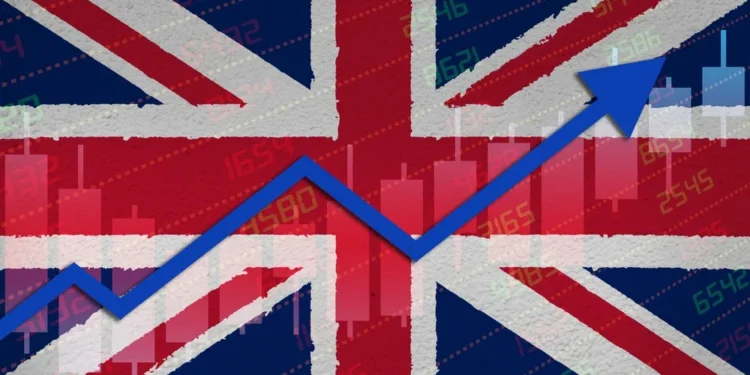In a notable turn of events, the United Kingdom’s benchmark indexes experienced a positive upswing on Wednesday, poised for a three-day winning streak. The unexpected hero of the day was the cooler-than-expected October inflation data, providing a boost to market sentiment. Concurrently, a surge in commodity prices propelled mining and energy stocks to higher levels.
As of 8:04 GMT, the commodity-centric FTSE 100 (.FTSE) demonstrated a 0.9% increase, while the mid-cap FTSE 250 (.FTMC) recorded a gain of 0.4%, signaling a favorable environment for investors.
The cooling of British inflation in October surpassed expectations, primarily driven by a decrease in household energy prices from the previous year. Simultaneously, the growth in price levels within the services sector, which had been persistently high, also showed signs of easing. This welcomed development is likely to bring relief to the Bank of England, allowing for a more balanced economic outlook.
The positive sentiment in the market triggered a surge in rate-sensitive stocks, with the homebuilders index (.FTNMX402020) leading the way with a 2% increase. The banks sector (.FTNMX301010) followed suit, gaining 1.3% in response to the optimistic market conditions.
Precious metal miners (.FTNMX551030) experienced a notable uptick, rising by 1.4%, while industrial metal miners (.FTNMX551020) saw a more substantial increase of 1.7%. This surge was attributed to the rising prices of most metals, driven by a softer dollar and retreating bond yields.
Shares of Experian (EXPN.L) soared by 3.3% following the world’s largest credit data company’s report of increased half-yearly profit. Experian’s positive performance was attributed to sustained demand in key markets, particularly North America and Europe.
Adding to the day’s successes, British power generator and network operator SSE Plc (SSE.L) reported half-yearly earnings that exceeded forecasts, prompting a 2.2% increase in its shares.
The overall bullish trend in the UK stock markets reflects the impact of unexpected economic factors, with inflation data and commodity price movements playing pivotal roles in driving investor confidence. As markets continue to respond to evolving economic conditions, analysts are closely monitoring these developments for potential future trends.










